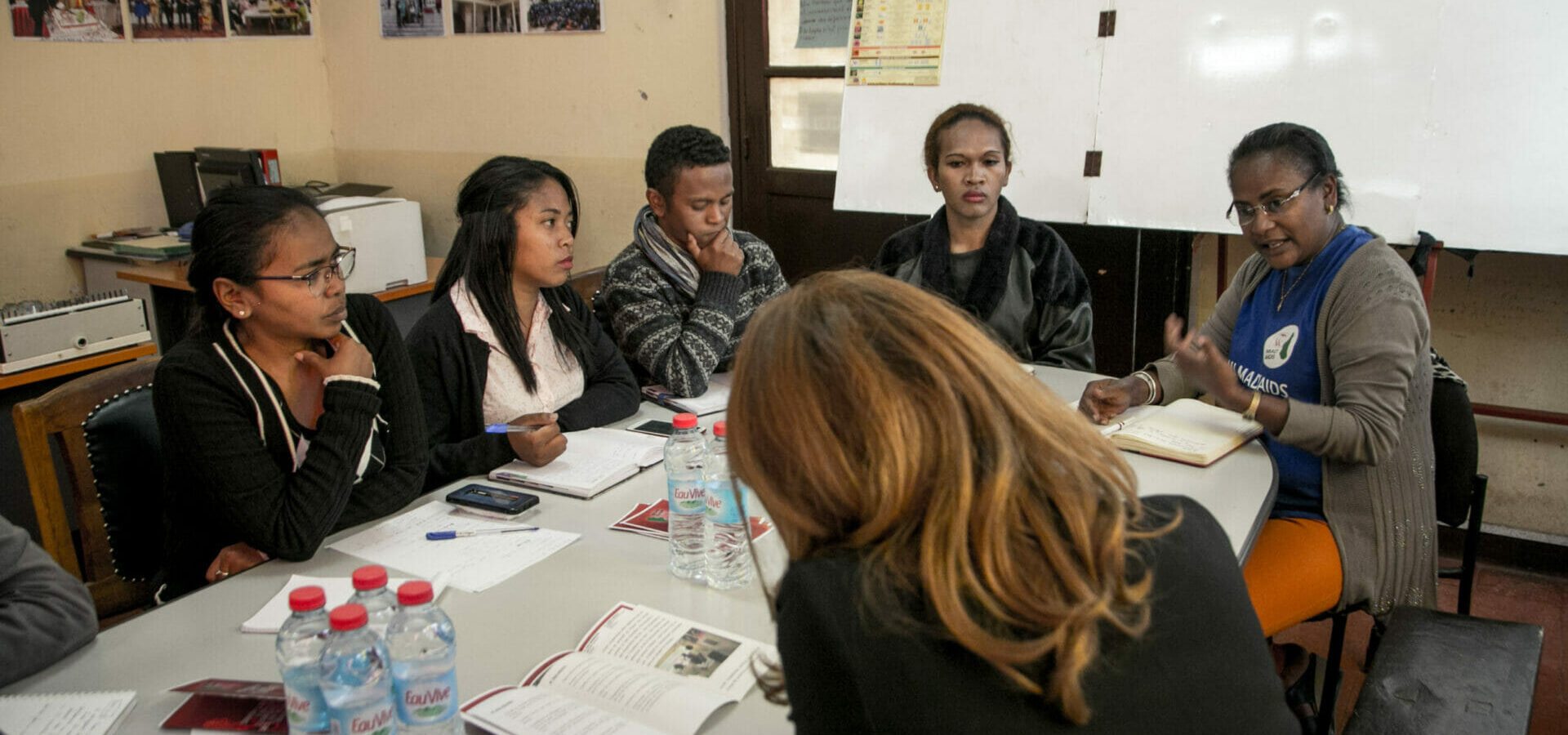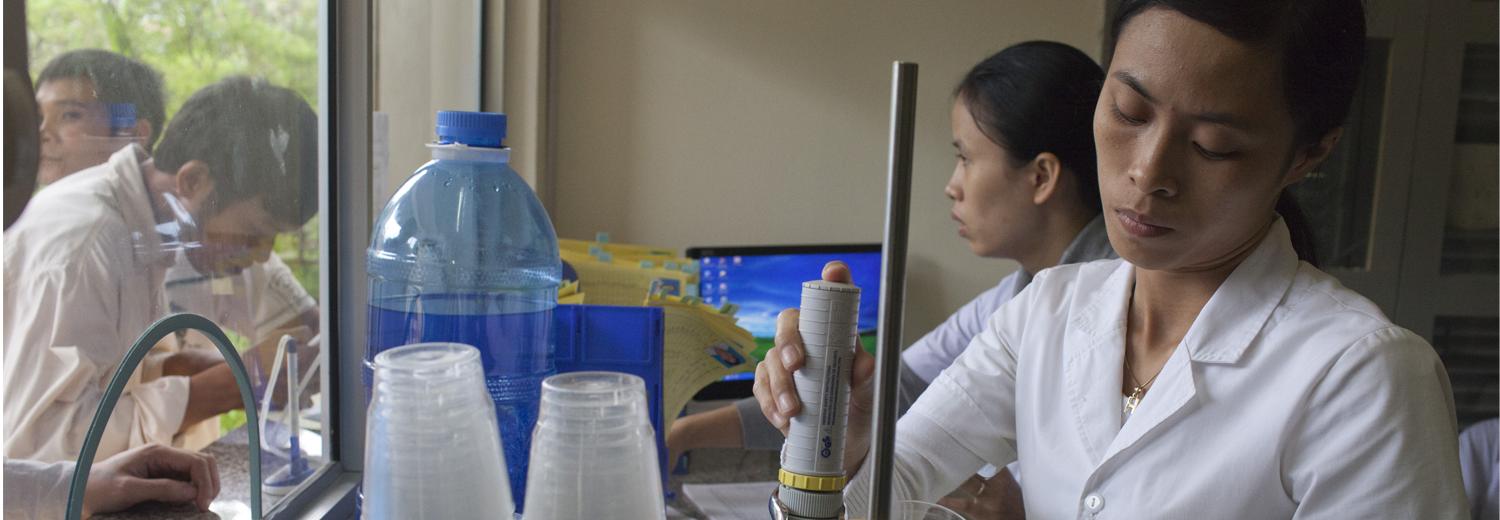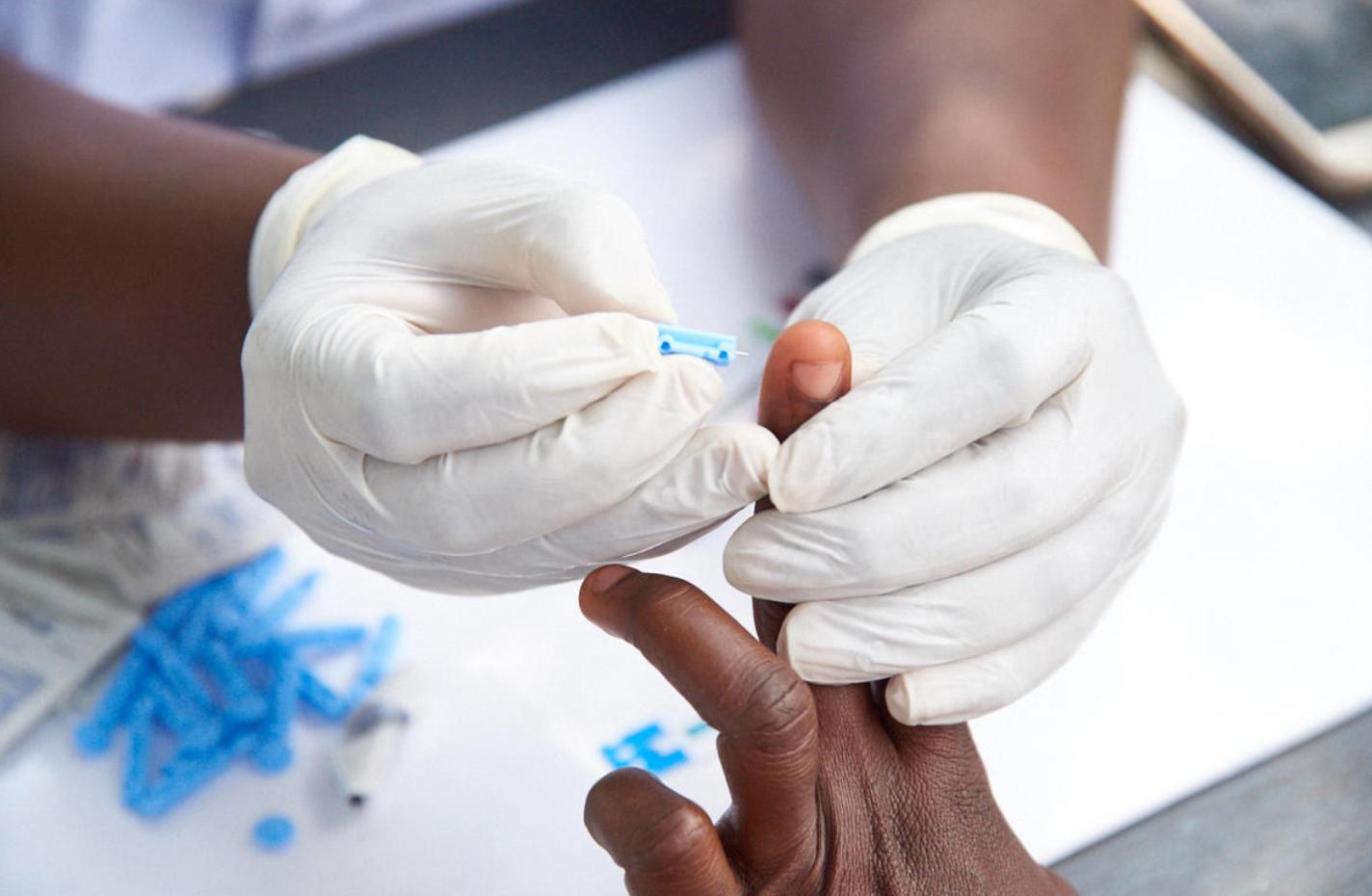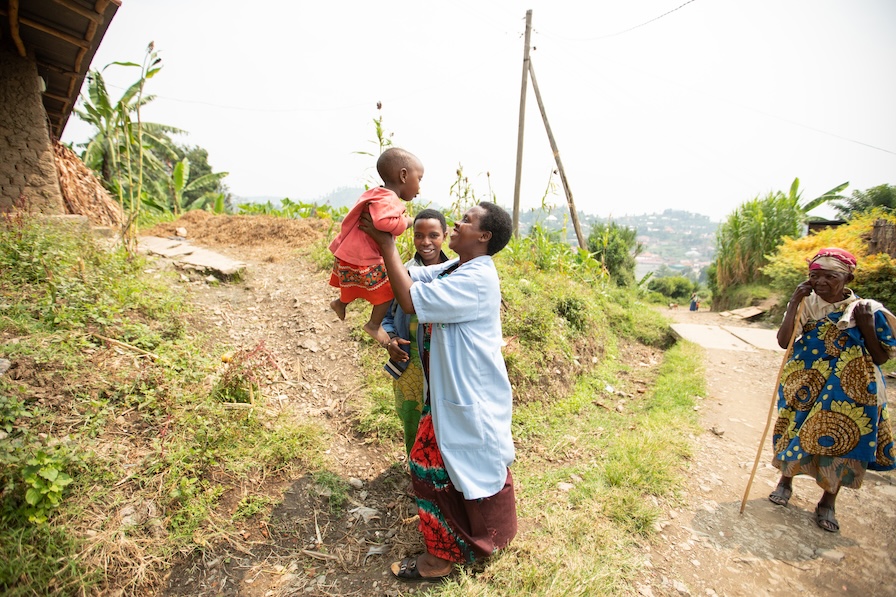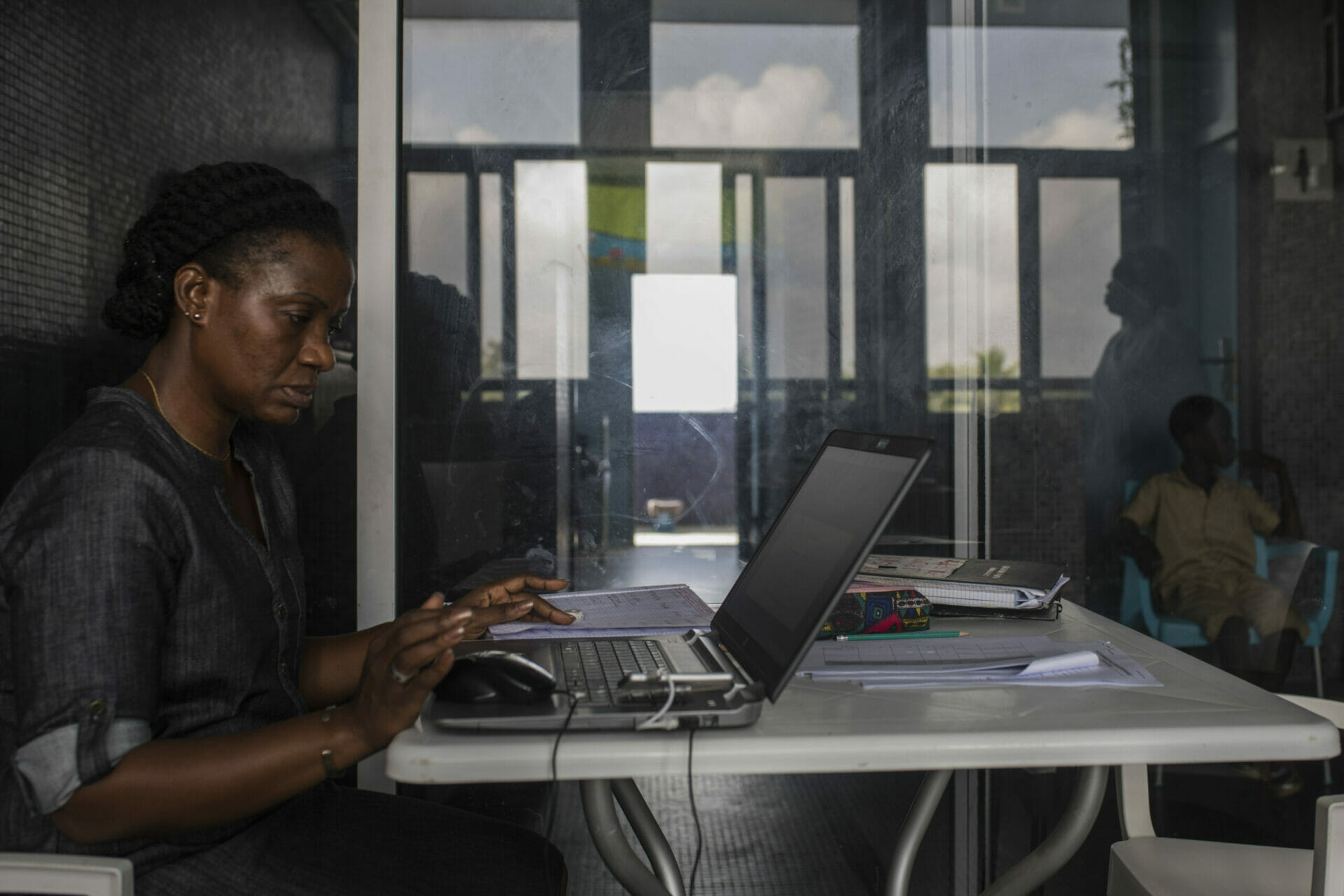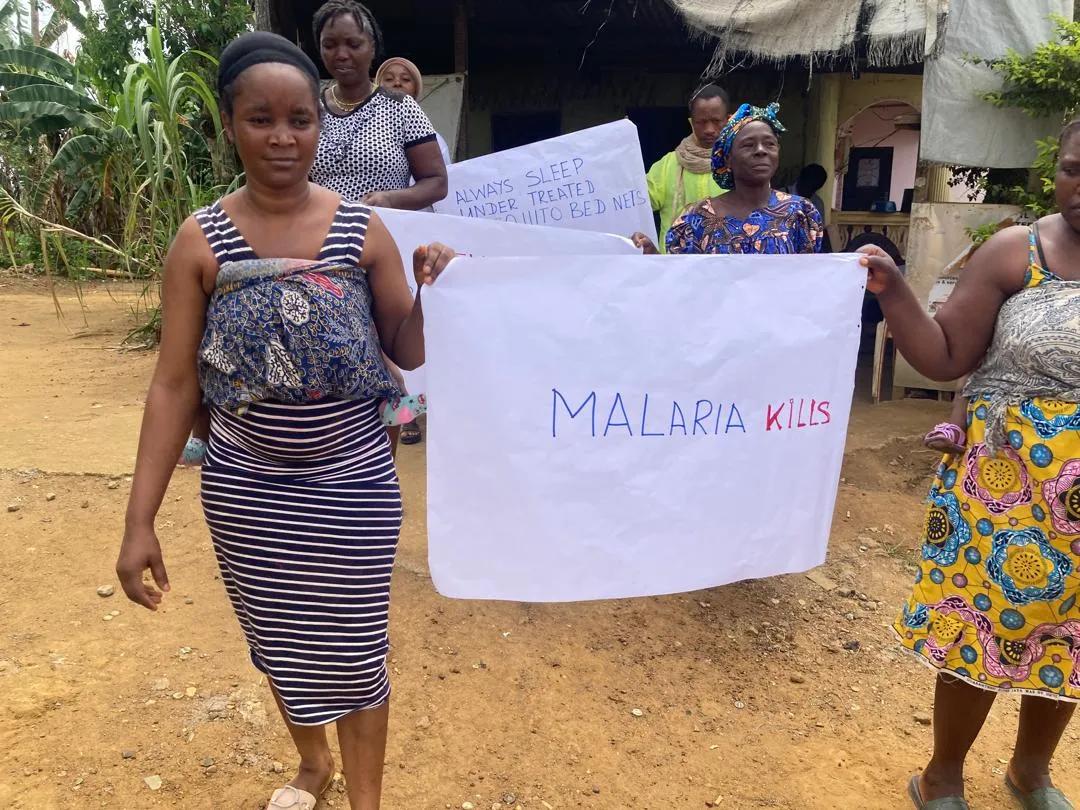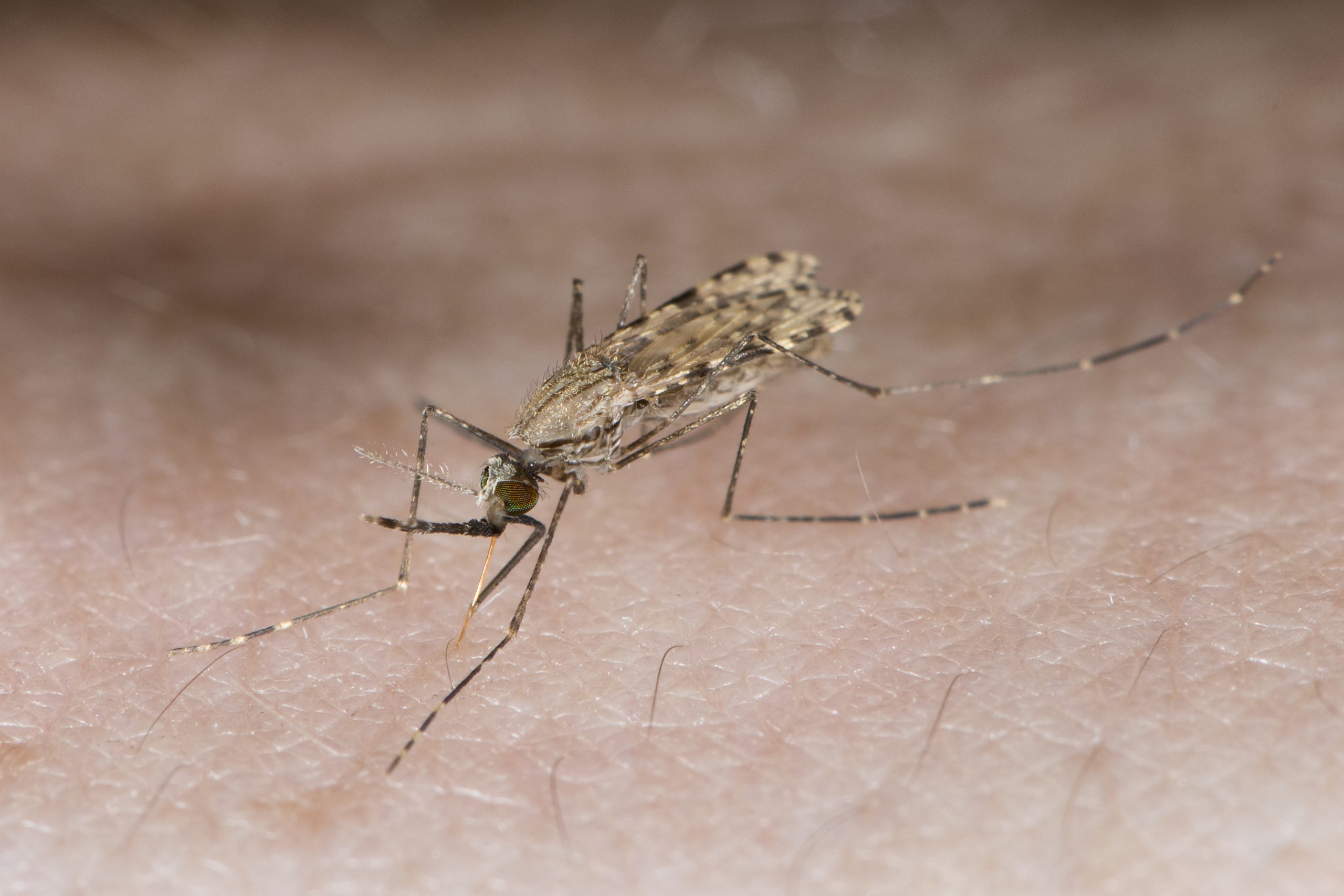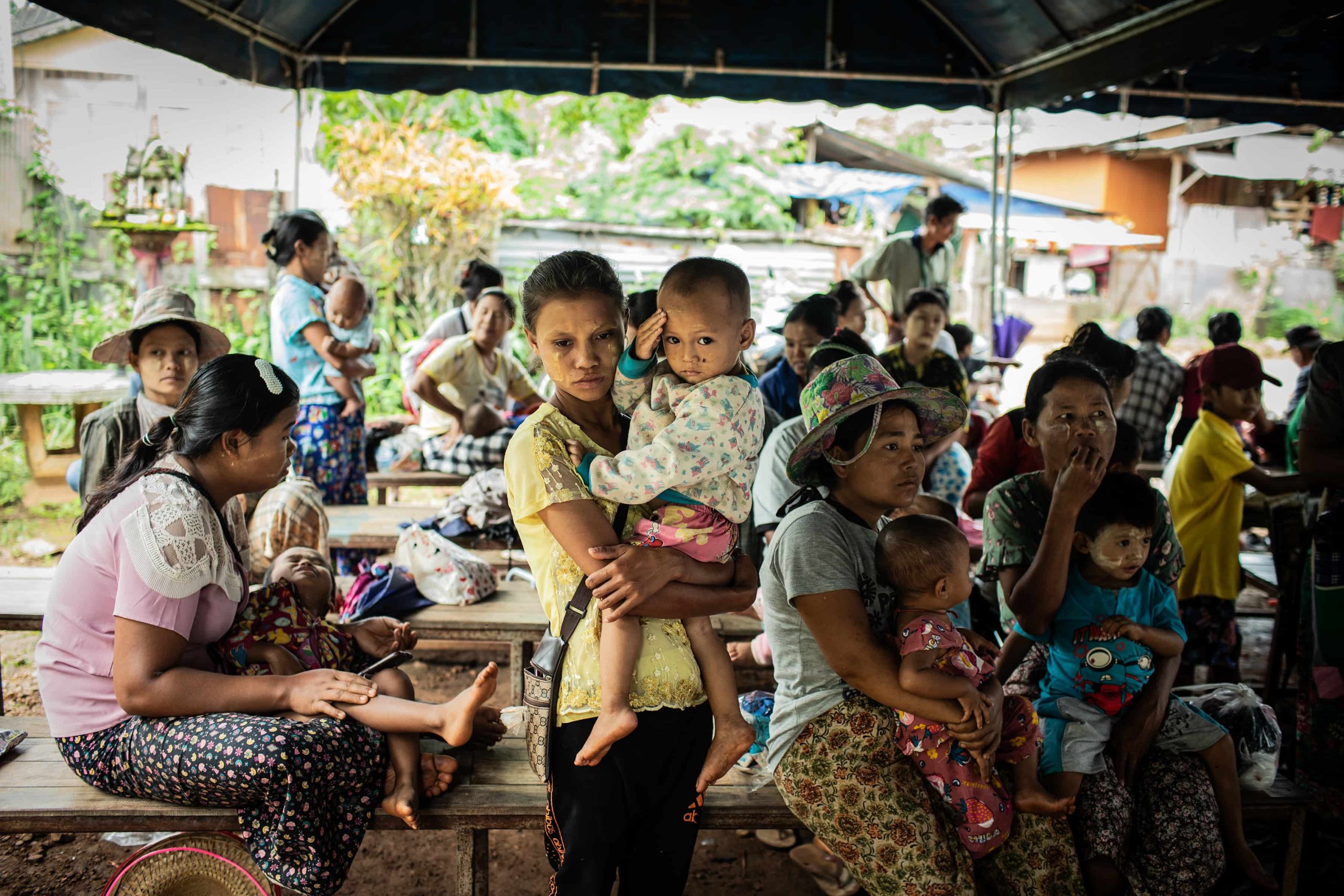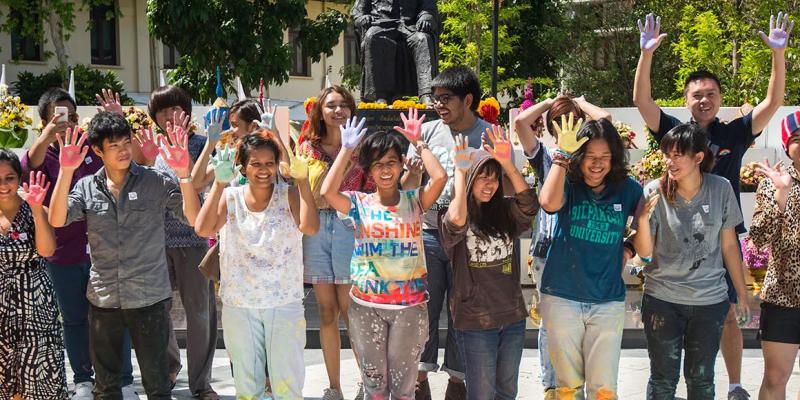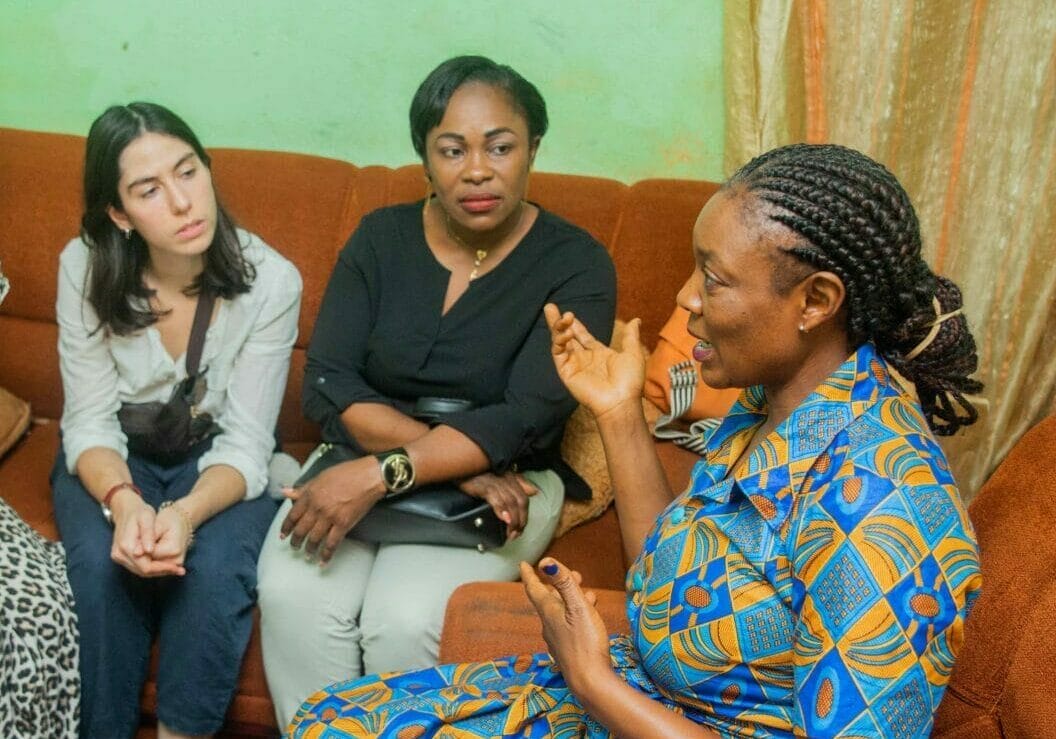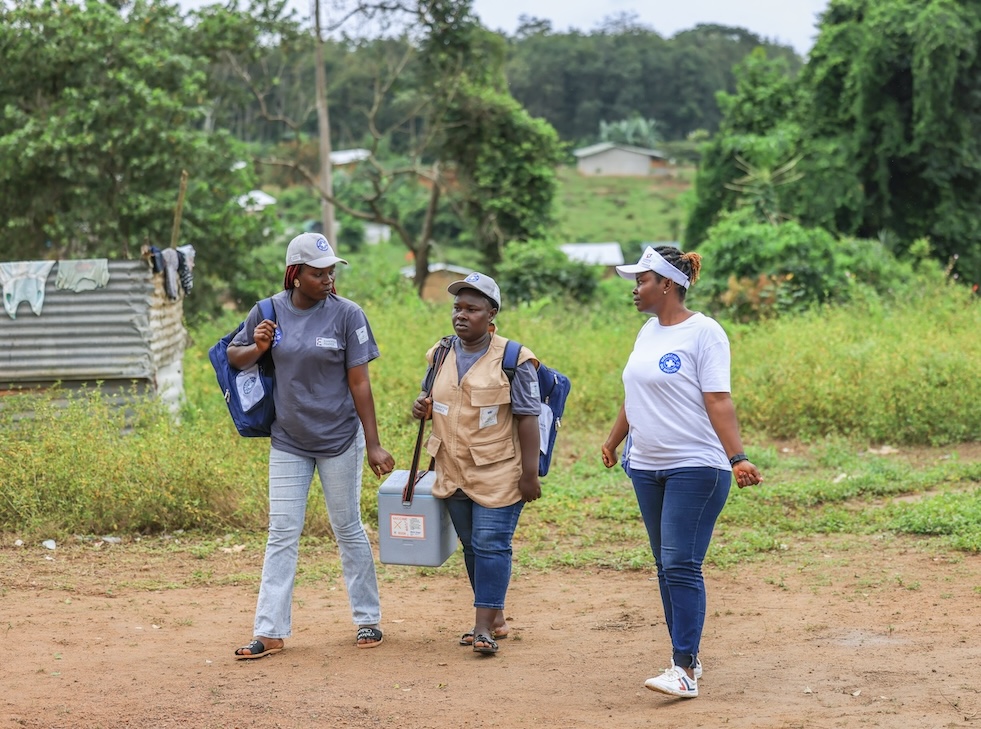Providing resources to key population organizations
What was the point of view of Malagasy authorities in relation to community testing?
Initially, the Malagasy authorities were reluctant, but we had numerous discussions, and joint advocacy was carried out by several entities, which enabled a change in their viewpoint. Following a request to L’Initiative by the National AIDS Committee’s Executive Secretariat (SE CNLS), seven experts were recruited to revise the national HIV and AIDS care protocol. The arguments put forward and the tenacity of André Inwoley, an international expert supporting non-clinical testing, were decisive in convincing the authorities to develop a pilot phase. The objective of this study was to test the feasibility of community testing in Madagascar. After results from this phase were shared, non-clinical testing was integrated into national policy. It is now included in the Global Fund grant for the next three years.
How was non-clinical testing implemented in practice?
In December 2019, the World Health Organization released new guidelines for HIV testing services. They recommended the use of self-testing devices and engaging community organizations to provide rapid diagnostic services. This was in line with our advocacy work, so we made sure that the team responsible for writing the new Global Fund HIV grant application was aware of it so that these different strategies could be incorporated.
At the end of 2019, Karin Hatzold, who is in charge of the regions of the West Africa and Southern Africa regions at Population Services International, also carried out in-depth work to train Malagasy teams on differentiated testing, according to the target population group. She also contributed to the final iteration of the HIV grant and consolidated the suggestions made by André Inwoley.
These combined efforts have led to the new application for an HIV grant from the Global Fund, which sets out the different testing strategies and the appropriate resources to implement them.
What difficulties have you encountered in this process?
The pyramid of care at the decentralized level relies heavily on community organizations, which paradoxically do not have sufficient resources to operate effectively despite our advocacy work.
In this way, no organization representing key populations has been selected as a recipient of the new HIV grant, and there has been no opposition from national programs or the Global Fund. The gap between the Global Fund’s discourse and reality is regrettable: often, the budget cuts are made during negotiations to finalize the grant-making phase related to resources allocated to PLHIV and key population organizations.
What is your view on L’Initiative’s work to support community organizations?
L’Initiative takes on its full meaning in this respect by complementing and compensating for what the Global Fund cannot, or has not chosen, to put in place. In the Indian Ocean region, I consider that L’Initiative has provided highly significant support to build and support the strengthening of community organizations in the region. There has been substantive work, fueled in particular by the establishment of south-south cooperation mechanisms. L’Initiative has helped to change attitudes about community testing, to integrate it into national policy, and to raise awareness of the Global Fund on this subject.
